Home>Garden Essentials>How Do You Consume Chia Seeds
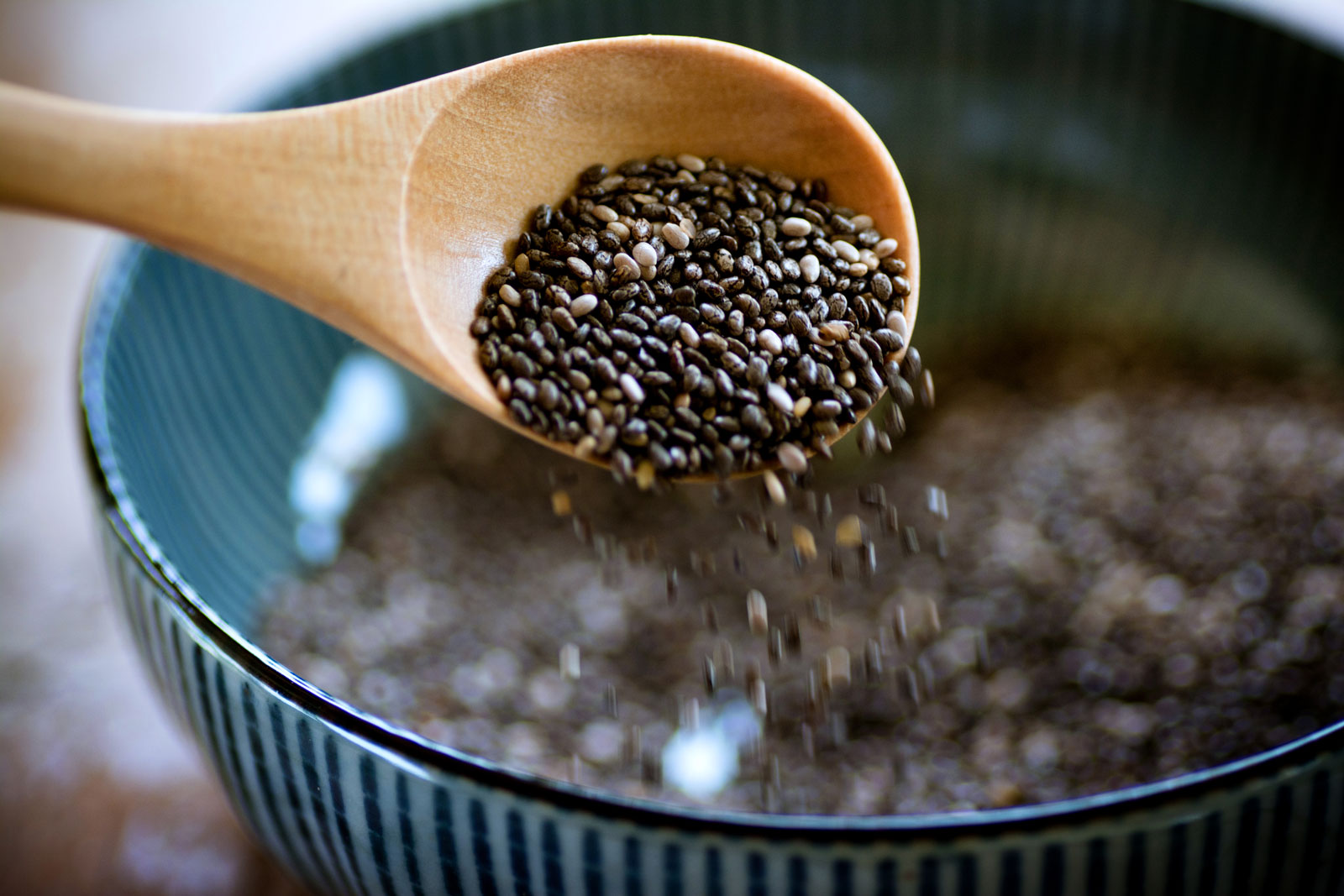

Garden Essentials
How Do You Consume Chia Seeds
Modified: March 24, 2024
Discover the many ways to consume nutritious chia seeds from your own garden and incorporate them into your diet for a healthy lifestyle.
(Many of the links in this article redirect to a specific reviewed product. Your purchase of these products through affiliate links helps to generate commission for Storables.com, at no extra cost. Learn more)
Introduction
Welcome to the wonderful world of chia seeds! These tiny superfoods have gained popularity in recent years due to their numerous health benefits and versatility in the kitchen. Chia seeds are packed with essential nutrients and can be easily incorporated into your daily diet in various ways.
But what exactly are chia seeds and why should you consider adding them to your meals? In this article, we will explore the nutritional profile of chia seeds, delve into their incredible health benefits, and discuss different ways to consume them. Whether you’re a health enthusiast or simply looking for a way to boost your overall well-being, chia seeds can be a fantastic addition to your pantry.
Chia seeds, scientifically known as Salvia hispanica, have been a staple in the diets of ancient civilizations like the Aztecs and Mayans for centuries. These seeds are derived from a flowering plant native to Central and South America and are a member of the mint family.
Chia seeds are highly regarded for their dense nutrient composition. They are an excellent source of fiber, protein, omega-3 fatty acids, antioxidants, and various vitamins and minerals. These little seeds are also gluten-free and suitable for vegans and vegetarians.
One of the key benefits of chia seeds is their high fiber content. Just a single ounce of chia seeds contains a staggering 10 grams of dietary fiber, which is approximately one-third of the recommended daily intake for adults. Fiber is essential for maintaining a healthy digestive system, promoting regular bowel movements, and preventing constipation.
Furthermore, chia seeds are packed with omega-3 fatty acids, including alpha-linolenic acid (ALA). Omega-3 fatty acids are crucial for brain health, reducing inflammation, and promoting heart health. They are also known for their potential to enhance cognitive function and improve mood.
In addition to their omega-3 content, chia seeds are rich in antioxidants. These powerful compounds help protect your body against free radicals, which are unstable molecules that can damage cells and contribute to chronic diseases such as cancer and heart disease. Antioxidants also play a role in maintaining healthy skin and promoting a youthful appearance.
Chia seeds are incredibly versatile and can be incorporated into a wide range of dishes. You can sprinkle them on top of salads, yogurt, or oatmeal for an added nutritional boost. They can also be used as a thickening agent in recipes like puddings or used as an egg substitute in vegan baking.
Whether you are looking to improve your digestion, boost your energy levels, or enhance your overall well-being, chia seeds can be an excellent addition to your diet. In the following sections of this article, we will explore the various ways to consume chia seeds and their potential health benefits in more detail. Let’s dive in!
Key Takeaways:
- Chia seeds are a tiny but mighty superfood, packed with fiber, omega-3 fatty acids, and antioxidants. They can support heart health, aid in digestion, and provide sustained energy throughout the day.
- Incorporating chia seeds into your diet is simple and versatile. From chia pudding to smoothies, there are numerous creative ways to enjoy their nutritional goodness and support your overall well-being.
Read more: How To Consume Chia Seeds For Constipation
What are Chia Seeds?
Chia seeds are small, oval-shaped seeds that come from the Salvia hispanica plant, which is native to areas of Central and South America. These seeds have been a part of human diets for thousands of years and were highly prized by ancient civilizations like the Aztecs and Mayans for their nutritional properties.
Chia seeds are often referred to as a superfood, and for good reason. They are loaded with essential nutrients and offer a wide range of health benefits. These tiny seeds are typically black or white in color and have a mild, nutty flavor.
When soaked in liquid, chia seeds develop a gel-like consistency due to their high soluble fiber content. This unique quality makes them a popular ingredient for creating healthy and delicious puddings, smoothies, and other culinary creations.
What sets chia seeds apart from other seeds is their remarkable nutritional profile. These seeds are an excellent source of dietary fiber, providing about 10 grams of fiber per ounce. Fiber is essential for maintaining a healthy digestive system, promoting satiety, and regulating blood sugar levels.
Chia seeds are also high in omega-3 fatty acids, particularly alpha-linolenic acid (ALA). Omega-3 fatty acids are crucial for supporting brain health, reducing inflammation, and improving heart health. Consuming adequate amounts of omega-3s may also help reduce the risk of chronic diseases such as heart disease and arthritis.
In addition to fiber and omega-3 fatty acids, chia seeds are rich in antioxidants. Antioxidants help protect the body against oxidative stress, which can lead to cell damage and various diseases. Furthermore, chia seeds are a good source of plant-based protein, making them an excellent option for vegetarians and vegans.
Chia seeds are also packed with essential vitamins and minerals. They are a good source of calcium, providing more calcium than most dairy products on a per-gram basis. Calcium is essential for maintaining strong bones and teeth and plays a crucial role in muscle function and nerve transmission.
Furthermore, chia seeds contain significant amounts of magnesium, phosphorus, and manganese. Magnesium is involved in over 300 biochemical reactions in the body, including energy production, muscle function, and DNA synthesis. Phosphorus is essential for healthy bones and teeth, while manganese plays a role in antioxidant defense and energy metabolism.
Overall, chia seeds are a nutritional powerhouse that can provide numerous benefits for your health. Incorporating them into your diet is a simple and effective way to boost your intake of essential nutrients and promote overall well-being. In the next section of this article, we will explore the specific health benefits of consuming chia seeds in more detail.
Nutritional Profile of Chia Seeds
Chia seeds may be small in size, but they are packed with an impressive array of essential nutrients. These powerhouse seeds are a nutrient-dense superfood that is beneficial for your overall health and well-being.
A serving of one ounce (28 grams) of chia seeds contains approximately:
- 139 calories
- 4 grams of protein
- 9 grams of fat
- 12 grams of carbohydrates
- 10 grams of fiber
- 2 grams of sugar
Chia seeds are an excellent source of dietary fiber, providing a significant amount in just one serving. Fiber is essential for maintaining a healthy digestive system and promoting regular bowel movements. It also helps to keep you feeling full and satisfied, making it beneficial for weight management. The fiber in chia seeds absorbs liquid and forms a gel-like texture, adding bulk to your stool and aiding in regularity.
Chia seeds are also a great source of omega-3 fatty acids, specifically alpha-linolenic acid (ALA). Omega-3 fatty acids are a type of polyunsaturated fat that plays a crucial role in supporting heart health, reducing inflammation, and promoting brain function. The ALA found in chia seeds is converted in the body to eicosapentaenoic acid (EPA) and docosahexaenoic acid (DHA), which are the active forms of omega-3 fatty acids that offer numerous health benefits.
Additionally, chia seeds are rich in antioxidants. Antioxidants are compounds that help protect the body against cellular damage caused by free radicals. Free radicals are unstable molecules that can lead to chronic diseases such as heart disease, cancer, and aging. The high antioxidant content in chia seeds helps to neutralize these free radicals and support overall health and well-being.
Chia seeds are also notable for their mineral content. They are an excellent source of calcium, magnesium, phosphorus, and manganese. Calcium is crucial for maintaining strong bones and teeth, while magnesium plays a vital role in muscle function, nerve transmission, and energy production. Phosphorus is necessary for bone health and cell repair, and manganese is involved in antioxidant defense and energy metabolism.
Moreover, chia seeds are a good source of plant-based protein. Protein is important for building and repairing tissues, and it plays a role in the production of enzymes, hormones, and antibodies. Chia seeds offer a complete source of protein, meaning they contain all nine essential amino acids that the body cannot produce on its own.
Incorporating chia seeds into your diet is an easy way to boost your intake of essential nutrients. They are a versatile ingredient that can be added to smoothies, yogurt, oatmeal, baked goods, and more. Whether you’re looking to support your digestion, promote heart health, or increase your overall nutrient intake, chia seeds are a fantastic addition to a healthy and balanced diet.
Health Benefits of Consuming Chia Seeds
Chia seeds are not only delicious and versatile, but they also offer a wide range of health benefits. Incorporating chia seeds into your diet can be a simple and effective way to improve your overall well-being. Let’s explore some of the key health benefits of consuming chia seeds:
1. Rich in Nutrients
Chia seeds are packed with essential nutrients, including fiber, protein, omega-3 fatty acids, antioxidants, and various vitamins and minerals. They offer a well-rounded nutritional profile that can nourish your body and support optimal health.
Read more: How Do You Prepare Chia Seeds
2. Promote Heart Health
The omega-3 fatty acids found in chia seeds have been linked to numerous heart health benefits. These healthy fats can help lower levels of bad cholesterol, reduce inflammation, regulate blood pressure, and improve overall heart function. Incorporating chia seeds into your diet can be a valuable step towards supporting cardiovascular health.
3. Support Digestive Health
Chia seeds are an excellent source of dietary fiber, with just one ounce providing a significant portion of your daily recommended intake. Fiber is crucial for maintaining a healthy digestive system, promoting regular bowel movements, and preventing constipation. Consuming chia seeds can help keep your digestive tract running smoothly.
4. Aid in Weight Loss
The high fiber and protein content in chia seeds can contribute to feelings of fullness and satiety. Including chia seeds in your meals can help curb hunger cravings, reduce snacking, and control portion sizes, making it easier to maintain a healthy weight or support weight loss efforts.
5. Provide Energy and Stamina
Chia seeds have long been valued for their ability to provide sustainable energy. Thanks to their balanced combination of protein, healthy fats, and fiber, chia seeds can help regulate blood sugar levels and provide a steady stream of energy throughout the day. Adding chia seeds to your pre-workout snack or breakfast can help fuel your activities and enhance endurance.
Read more: How Do You Drink Chia Seeds
6. Support Bone Health
Chia seeds are an excellent source of calcium, which is essential for maintaining strong bones and teeth. Regular consumption of chia seeds can help boost your calcium intake, reducing the risk of osteoporosis and promoting optimal skeletal health. The combination of calcium, magnesium, and phosphorus found in chia seeds contributes to overall bone strength.
7. Aid in Detoxification
The high antioxidant content in chia seeds helps protect the body against free radicals and oxidative stress. Antioxidants play a crucial role in detoxifying the body by neutralizing harmful substances and supporting the liver’s natural detoxification processes. Including chia seeds in your diet can help enhance your body’s ability to eliminate toxins and promote overall well-being.
Incorporating chia seeds into your daily diet can provide you with a wide range of health benefits. From supporting heart health and promoting digestion to aiding in weight loss and providing sustained energy, chia seeds are a nutritional powerhouse that can contribute to a healthy and vibrant life.
Different Ways to Consume Chia Seeds
Chia seeds are incredibly versatile and can be enjoyed in various ways. Whether you prefer them soaked, ground, or sprinkled on top of your favorite dishes, there are numerous creative ways to incorporate chia seeds into your daily diet. Here are some different ways to consume chia seeds:
1. Chia Pudding
Chia pudding is a popular and nutritious breakfast or dessert option. Simply combine chia seeds with your choice of milk (dairy or plant-based) and a sweetener, such as honey or maple syrup. Let the mixture sit in the refrigerator overnight to allow the chia seeds to absorb the liquid and create a pudding-like consistency. Top with fresh fruits, nuts, or granola for added flavor and texture.
Read more: How Do You Grow Chia Seeds
2. Smoothies
Add a tablespoon or two of chia seeds to your favorite smoothie recipe for an extra boost of fiber, protein, and omega-3 fatty acids. The chia seeds will add thickness and texture to your smoothie while providing a nutritional punch. Blend them along with your other ingredients for a healthy and satisfying beverage.
3. Chia Jam
Create a delicious and healthier version of jam by using chia seeds. Simply mash your choice of fruits, such as berries or mango, and heat them in a saucepan. Add in chia seeds and a sweetener of your choice, then let the mixture simmer until it thickens into a jam-like consistency. Use it as a topping for toast, yogurt, or oatmeal.
4. Baked Goods
Chia seeds can be incorporated into various baked goods, such as muffins, bread, and cookies. You can add them directly to the batter or dough, providing an extra boost of fiber, protein, and nutrients. Chia seeds can also be used as an egg substitute in vegan baking; simply mix one tablespoon of chia seeds with three tablespoons of water and let it sit for a few minutes to gel, then use it as a replacement for one egg.
5. Salads and Yogurt
Sprinkle chia seeds on top of salads or mix them into your yogurt for added crunch and nutritional benefits. They can enhance the texture of your dishes while providing a dose of fiber, protein, and healthy fats. Experiment with different combinations and flavors to create a satisfying and nutritious meal.
Read more: How Do You Use Chia Seeds For Weight Loss
6. Chia Water or Juice
If you prefer a simpler way to consume chia seeds, you can stir them into a glass of water or juice. Let the seeds sit for a few minutes to allow them to absorb the liquid and create a gel-like texture. This provides a refreshing and hydrating way to enjoy the benefits of chia seeds.
7. Chia Energy Bars
Make your own energy bars by combining chia seeds with nuts, dried fruits, and sweeteners like honey or nut butter. Press the mixture into a pan and refrigerate until firm, then cut into bars for a convenient and nutrient-packed snack on the go.
These are just a few examples of how you can incorporate chia seeds into your daily diet. Get creative and experiment with different recipes and combinations to find your favorite ways to enjoy these nutritious seeds. Remember to start with small amounts and gradually increase your intake to allow your body to adjust to the fiber content. Enjoy the benefits and versatility of chia seeds in a way that suits your taste and lifestyle!
Incorporating Chia Seeds into Your Daily Diet
Adding chia seeds to your daily diet is a simple and effective way to boost your nutritional intake and enjoy their numerous health benefits. These versatile seeds can be incorporated into a wide range of dishes, from breakfast to dinner, and everything in between. Here are some tips for incorporating chia seeds into your daily diet:
1. Start with Small Amounts
If you are new to chia seeds, it’s best to start with small amounts and gradually increase your intake. Chia seeds are high in fiber, which means they can cause digestive discomfort if you consume too much at once. Begin with a teaspoon or two per day and monitor how your body reacts. Once you feel comfortable, you can gradually increase the amount.
Read more: How Much Chia Seeds Do You Put In A Smoothie
2. Add to Smoothies and Shakes
One of the easiest ways to incorporate chia seeds into your diet is by adding them to smoothies and shakes. Simply blend them along with your favorite fruits, vegetables, and a liquid of your choice. The chia seeds will add a subtle crunch and increase the nutritional content of your beverage.
3. Mix into Yogurt and Oatmeal
Sprinkle chia seeds onto your yogurt or mix them into your oatmeal for an added nutritional boost. They will not only add texture and visual appeal but also provide fiber, protein, and omega-3 fatty acids to your breakfast or snack. You can also experiment with different flavor combinations by adding fruits, nuts, or honey.
4. Make Chia Puddings
Chia puddings are not only delicious but also a convenient way to enjoy chia seeds. Mix chia seeds with your choice of milk (dairy or plant-based) and a sweetener, such as honey or maple syrup. Let the mixture sit in the refrigerator overnight to allow it to thicken and create a pudding-like consistency. Top with fruits, nuts, or granola for added flavor and texture.
5. Use as an Egg Substitute
If you follow a vegan or egg-free diet, chia seeds can be used as an egg substitute in baking. Mix one tablespoon of chia seeds with three tablespoons of water and let it sit for a few minutes to create a gel-like mixture. Use this substitute whenever a recipe calls for eggs, such as in cookies, muffins, or pancakes.
Read more: How To Consume Black Seeds
6. Sprinkle on Salads and Soups
Sprinkle chia seeds on top of your salads, soups, or roasted vegetables to add a nutritional punch. The seeds will provide a delightful crunch and enhance the texture of your dishes. You can also combine chia seeds with other spices and herbs to create a flavorful seasoning mix.
7. Experiment in Baking
Get creative and incorporate chia seeds into various baked goods, such as bread, muffins, or granola bars. They can be added directly to the dough or used as a topping. The chia seeds will add a nutty flavor and boost the nutritional content of your baked treats.
8. Hydrate with Chia Water or Tea
Create a refreshing chia-infused beverage by stirring chia seeds into water or tea. Let the mixture sit for a few minutes to allow the seeds to absorb the liquid and create a gel-like texture. Add a squeeze of lemon or a dash of honey for extra flavor.
Incorporating chia seeds into your daily diet doesn’t have to be complicated. Start small, try out different recipes, and listen to your body’s response. Whether you choose to use them in smoothies, puddings, or as a topping, chia seeds can be a fantastic addition to your meals, providing you with essential nutrients and a delightful texture.
Precautions and Side Effects
While chia seeds offer numerous health benefits and are generally safe for most people to consume, it’s important to be aware of a few precautions and potential side effects. Here are some considerations to keep in mind when incorporating chia seeds into your diet:
Read more: How To Consume Hemp Seeds
1. Allergic Reactions
Although rare, some individuals may be allergic to chia seeds. If you have a known allergy to sesame seeds or other seeds, it’s advisable to exercise caution when consuming chia seeds. If you experience any allergic symptoms such as itching, swelling, or difficulty breathing, discontinue use immediately and seek medical attention.
2. Digestive Issues
Chia seeds are high in fiber, which can be beneficial for digestive health. However, consuming excessive amounts of fiber without sufficient water intake may cause digestive discomfort, including bloating, gas, or constipation. It’s important to start with small amounts, gradually increase your intake, and drink plenty of water to ensure proper hydration and facilitate digestion.
3. Blood Thinning Effects
Chia seeds contain a moderate amount of omega-3 fatty acids, which have blood thinning properties. If you are taking blood-thinning medications or have a bleeding disorder, it’s advisable to consult with your healthcare provider before adding chia seeds to your diet. They can provide personalized guidance and ensure that there are no adverse interactions.
4. Potential for Choking
Chia seeds, when exposed to liquid, form a gel-like consistency due to their high soluble fiber content. It is important to let the seeds fully hydrate before consuming to avoid choking. If you have difficulty swallowing or a history of swallowing disorders, it’s recommended to enjoy chia seeds in a gel-like form, such as in chia pudding or mixed well with liquid-based foods.
Read more: How Do Chia Seeds Grow
5. Blood Sugar Levels
While chia seeds are often touted for their ability to stabilize blood sugar levels, individuals with diabetes or those taking medications to control blood sugar should monitor their levels closely when incorporating chia seeds into their diet. Chia seeds may have a slight blood sugar-lowering effect, which could require adjustments to medication dosages. It’s important to consult with a healthcare professional for personalized guidance.
6. Interactions with Medications
Chia seeds, like other dietary supplements, have the potential to interact with certain medications. If you are taking any prescription medications or have underlying health conditions, it is advisable to consult with a healthcare provider before incorporating chia seeds into your daily diet. They can provide specific advice based on your individual circumstances.
As with any dietary changes, it’s important to listen to your body and make adjustments as needed. If you experience any adverse reactions or concerns after consuming chia seeds, it’s recommended to discontinue use and consult with a healthcare professional for further evaluation.
By keeping these precautions in mind and consuming chia seeds in moderation, you can enjoy their health benefits while minimizing potential risks. As always, it’s important to prioritize a balanced and varied diet that includes a wide range of nutrient-rich foods.
Conclusion
Chia seeds are more than just a trendy superfood – they are a nutritional powerhouse that can offer a wide range of benefits for your overall health and well-being. From their high fiber and omega-3 fatty acid content to their abundance of vitamins, minerals, and antioxidants, chia seeds pack a punch when it comes to nutrient density.
Incorporating chia seeds into your daily diet is simple and versatile. Whether you choose to sprinkle them on top of salads, blend them into smoothies, or use them to create chia pudding, there are numerous creative ways to enjoy their nutritional goodness.
By consuming chia seeds regularly, you can support heart health, promote digestion, aid in weight management, increase energy levels, and provide essential nutrients to your body. Their fiber-rich nature helps maintain a healthy digestive system, while their omega-3 fatty acids contribute to brain health and reduce inflammation. Chia seeds are also beneficial for maintaining strong bones, supporting a healthy weight, and providing sustained energy throughout the day.
However, it is important to start with small amounts and gradually increase your intake to avoid digestive discomfort. It’s also essential to drink plenty of water to ensure hydration, especially considering chia seeds’ high fiber content.
While chia seeds are generally safe for most people, it’s crucial to be mindful of potential allergic reactions and to consult with a healthcare professional if you have any concerns, particularly if you have existing medical conditions or take medications that may interact with chia seeds.
In conclusion, adding chia seeds to your daily diet can be a simple yet effective way to enhance your overall nutritional intake and support your health goals. Incorporate them into your favorite recipes, experiment with different ways of consumption, and enjoy their nutty flavor and unique texture.
Remember, a healthy diet is about balance and variety, so complement your chia seed consumption with a diverse range of fruits, vegetables, whole grains, and lean proteins. Embrace the power of chia seeds and discover the potential they hold to nourish your body and elevate your well-being.
Frequently Asked Questions about How Do You Consume Chia Seeds
Was this page helpful?
At Storables.com, we guarantee accurate and reliable information. Our content, validated by Expert Board Contributors, is crafted following stringent Editorial Policies. We're committed to providing you with well-researched, expert-backed insights for all your informational needs.
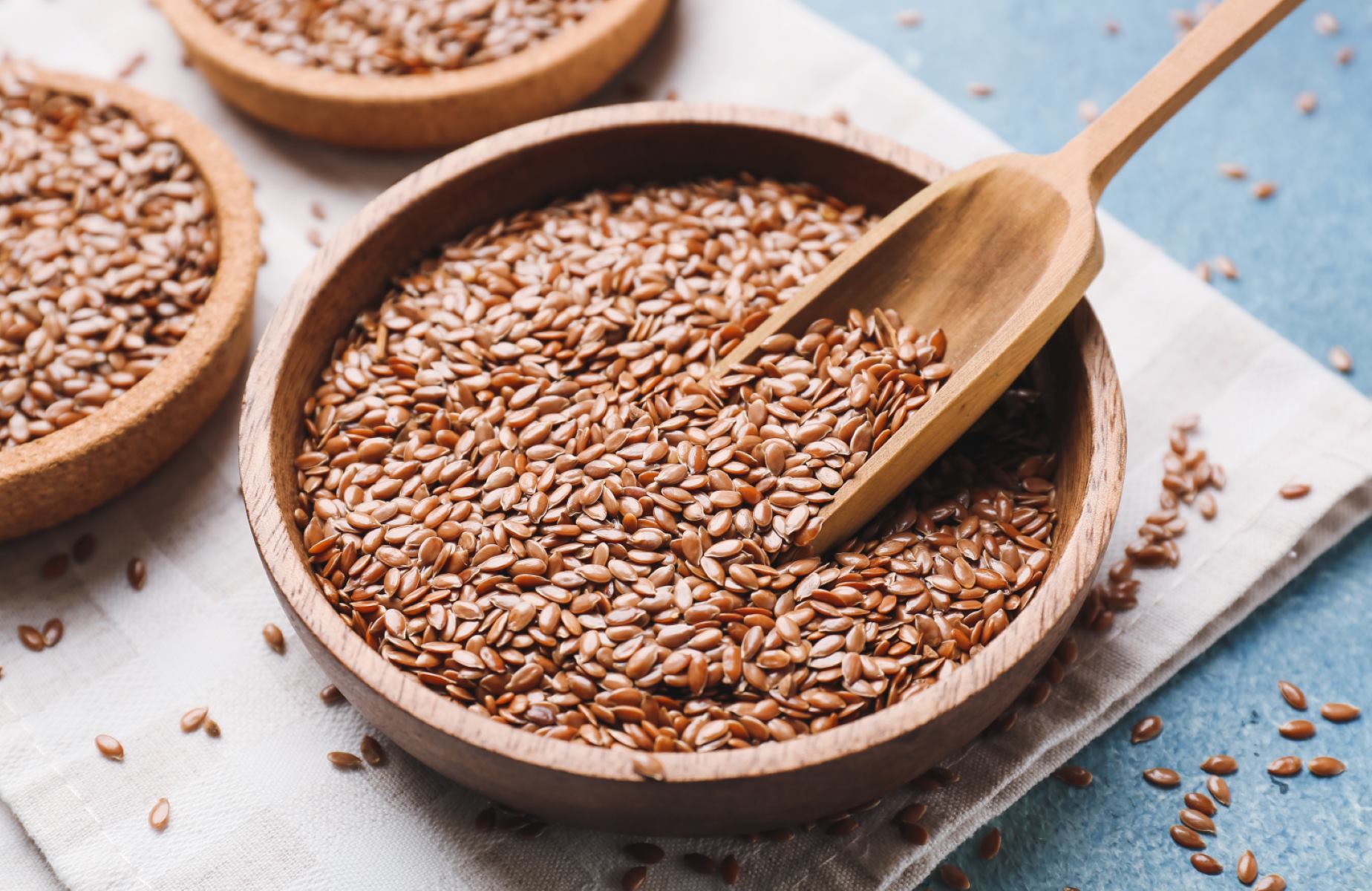
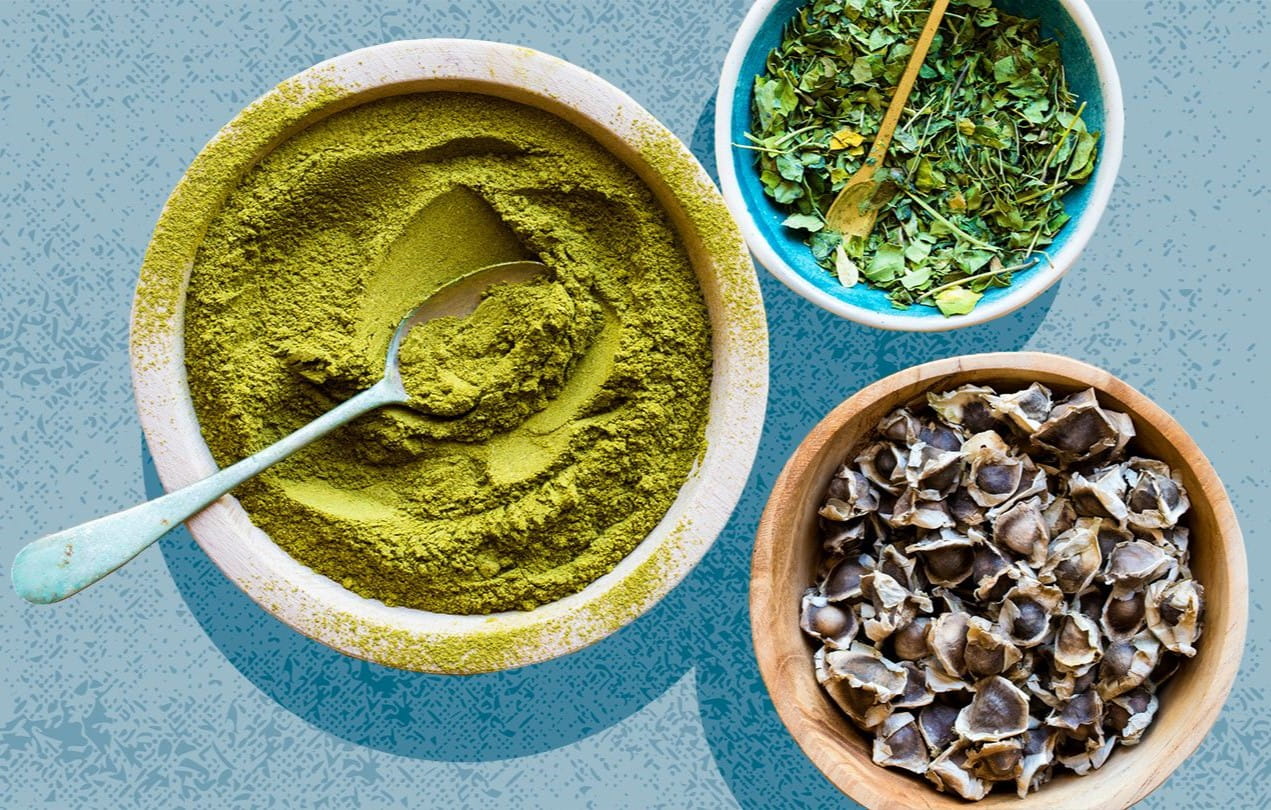
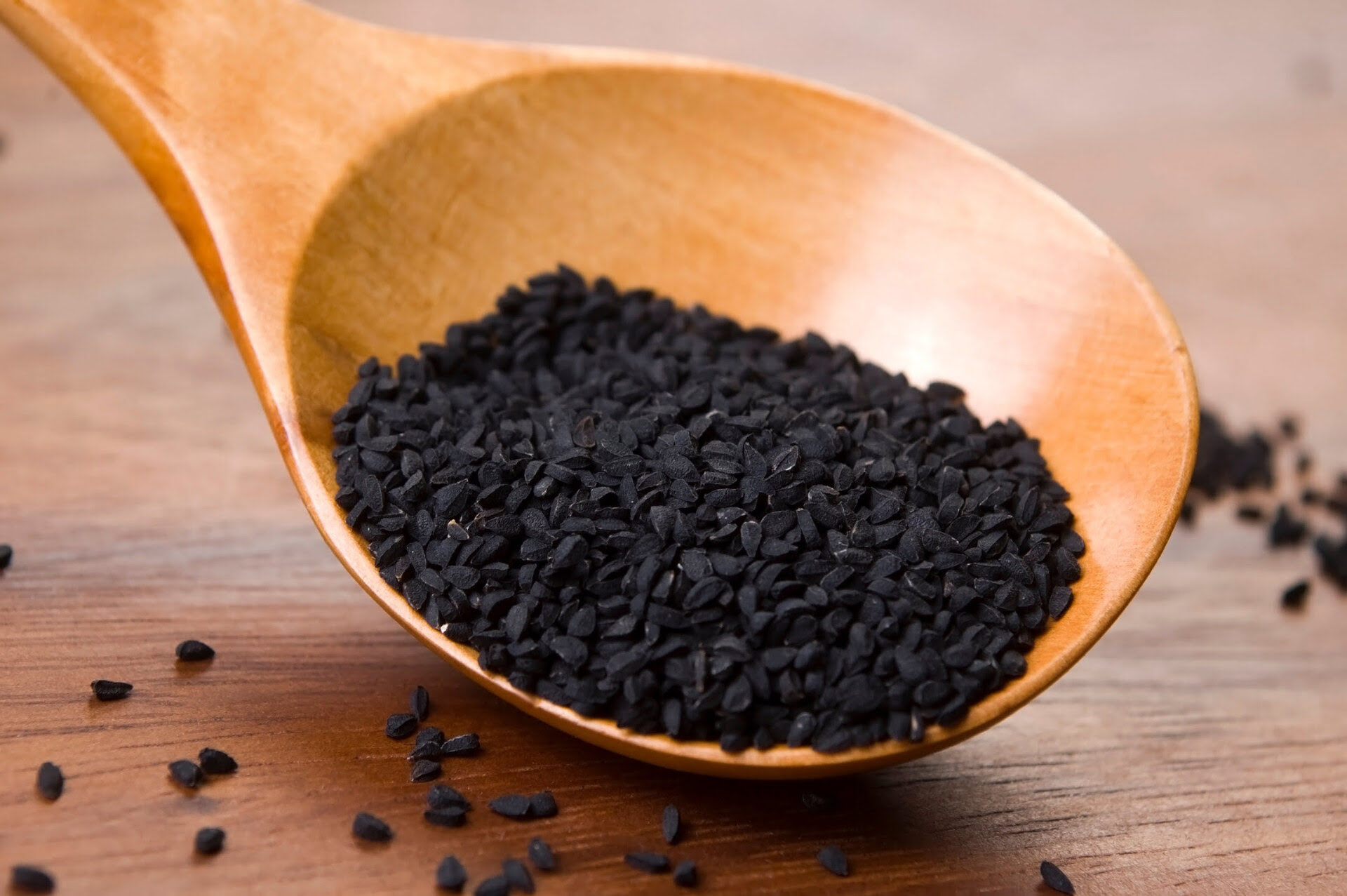
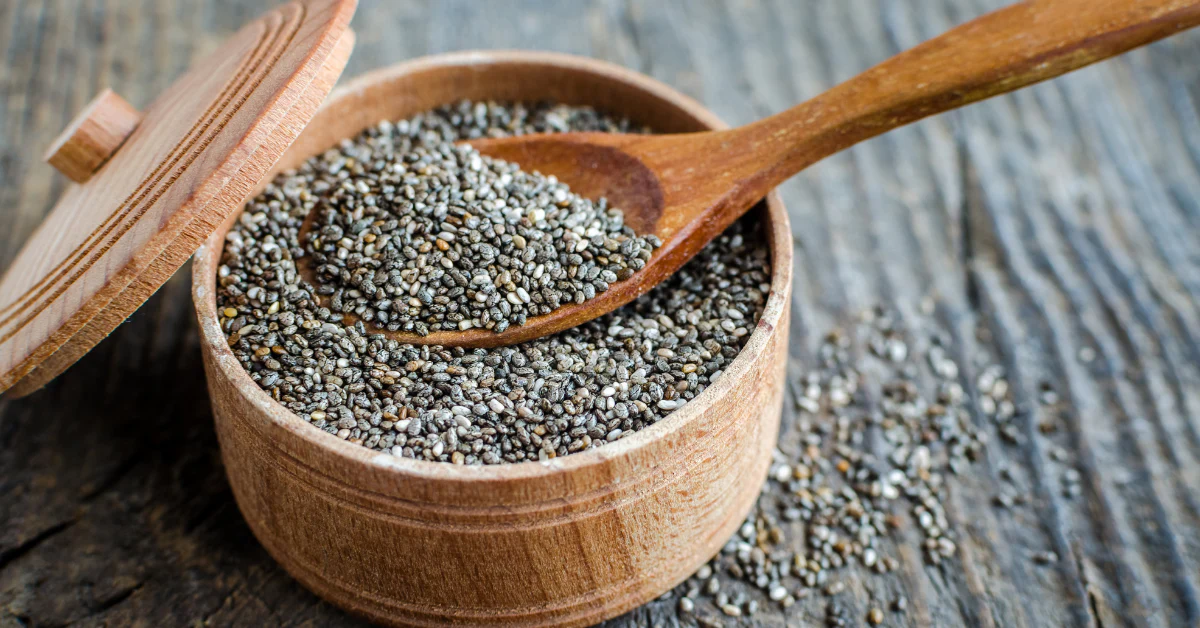
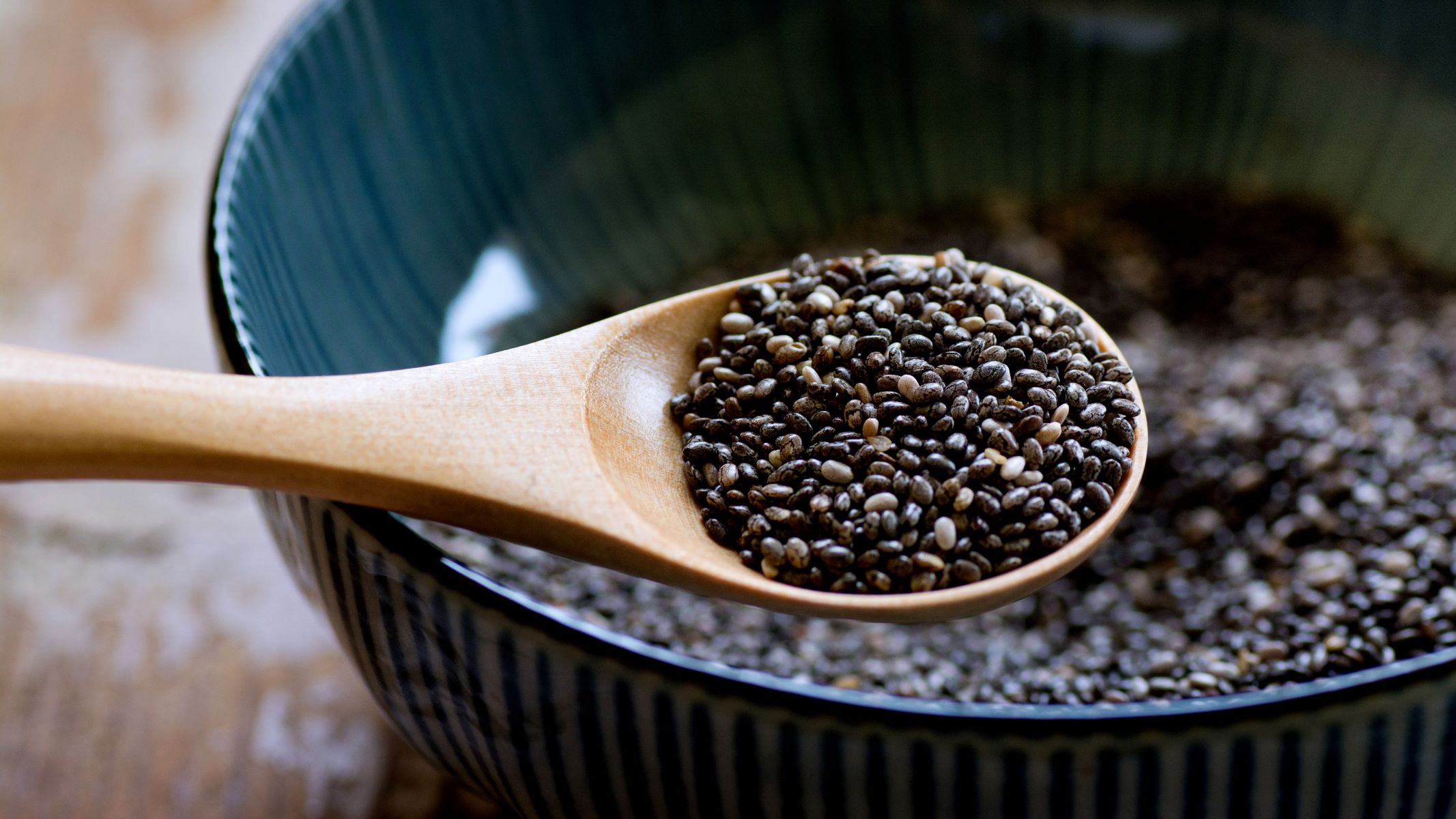
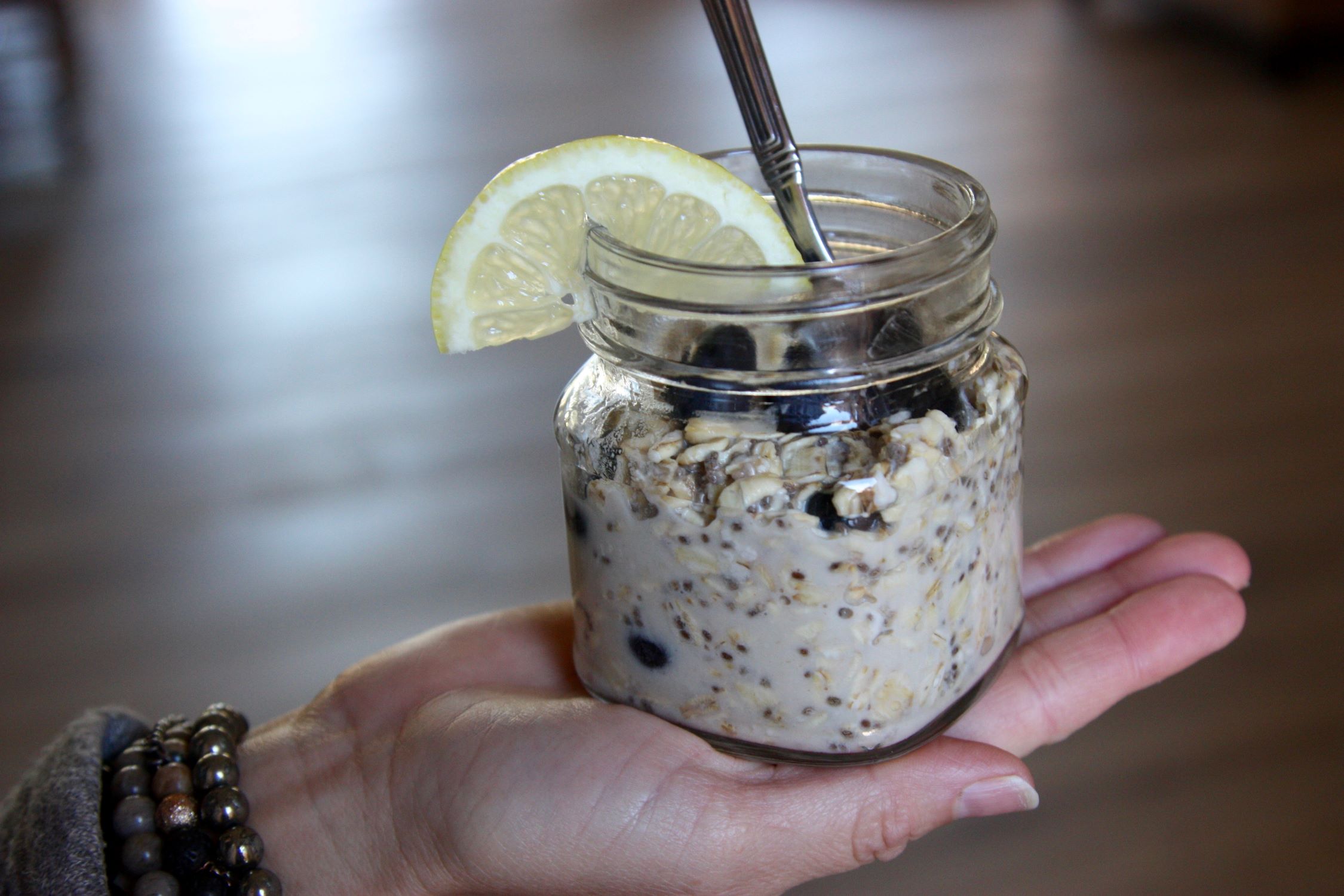
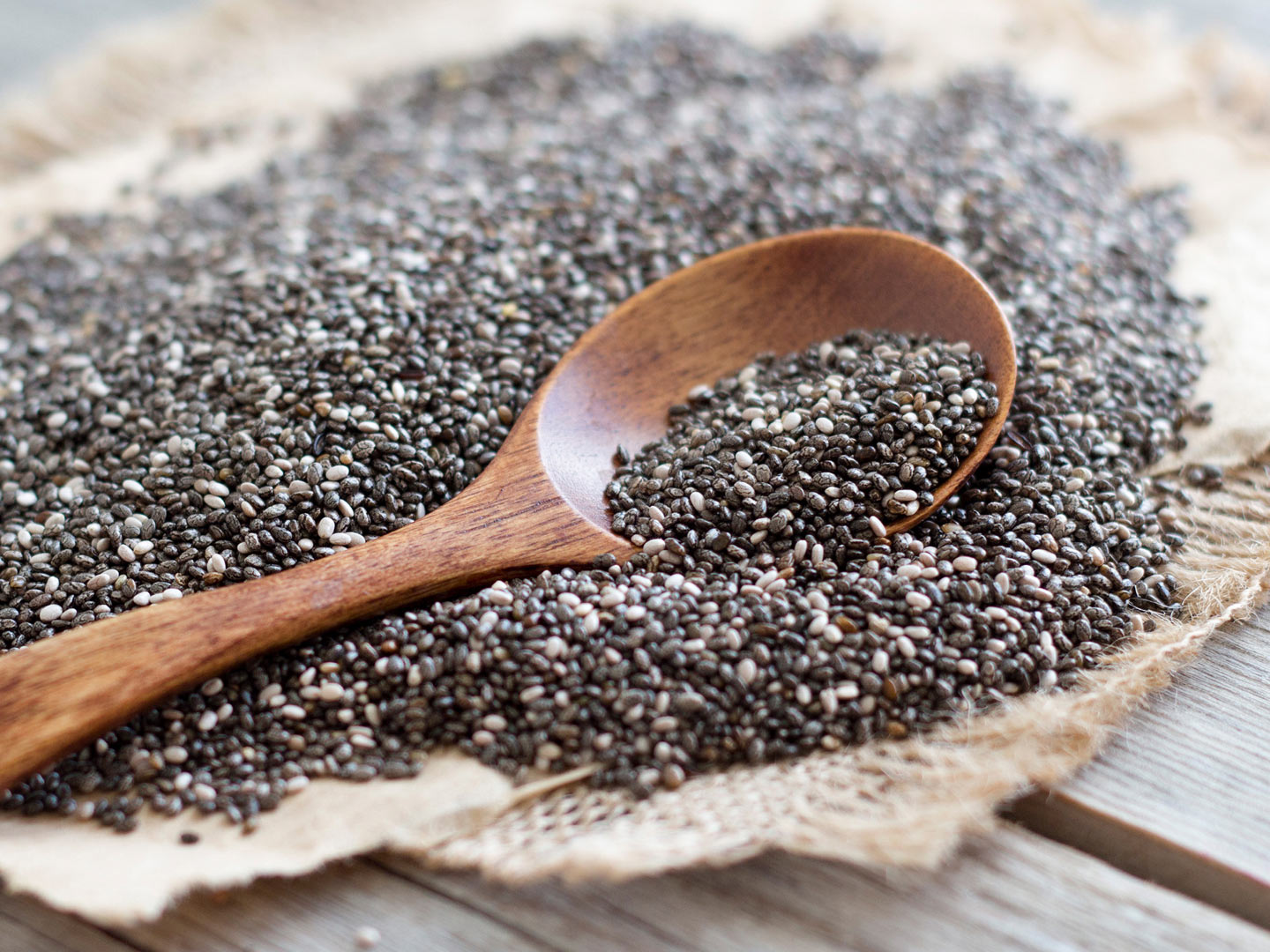

0 thoughts on “How Do You Consume Chia Seeds”